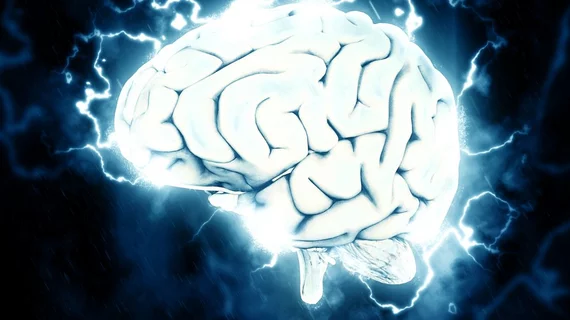New imaging technique changes brain activity, could help millions of mental health patients
Researchers have found that low-intensity ultrasound can changee decision-making processes in the brain, sharing their findings in Nature Neuroscience.
The study’s authors used low-intensity ultrasonic waves on the brains of macaque monkeys to impair their ability to remember certain information. The waves were able to target neurons in the cingulate cortex of each monkey’s brain with “pinpoint accuracy.” Previous research had shown that the imaging technique did not harm the monkeys.
“This is a really exciting study for two main reasons,” lead author Elsa F. Fouragnan, PhD, school of psychology at the University of Plymouth in the U.K., said in a prepared statement on the university’s website. “Firstly, because we discovered that the cingulate cortex is crucial to help switch to better alternatives, and secondly, because low-intensity ultrasound can be used to reversibly change brain activity in very precise part of the brain.”
Fouragnan added that this imaging technique, called ultrasound neurostimulation, could “improve the lives of millions of patients with mental health conditions by stimulating brain tissues with millimeter accuracy.”
“Presently, neuromodulation techniques do exist for humans, to help people with conditions such as major depression or Parkinson’s,” she said. “But there are no techniques that have this level of accuracy while remaining non-invasive.”
Fouragnan also noted that the next stage for this research is to conduct trials on humans.

